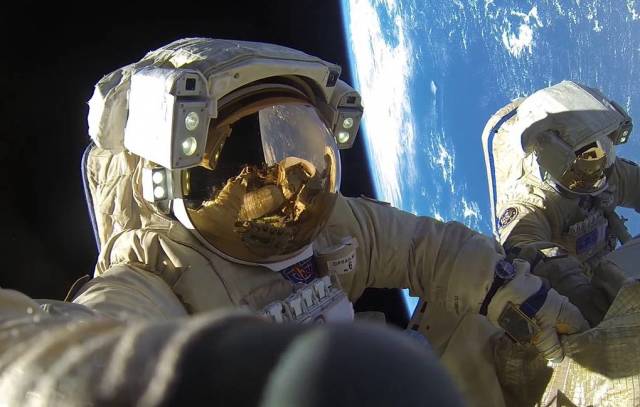Deputy Prime Minister Yuri Borisov previously stated that the state of the ISS leaves much to be desired, so Russia can focus on creating its own orbital station
WASHINGTON, August 1. /TASS/. The US National Aeronautics and Space Administration (NASA) expects that from an engineering point of view it will be able to support the operation of the ISS until at least 2028 and probably even longer. This was stated on Saturday by NASA representative Stephanie Schirholz.
Earlier, Roscosmos distributed a message about the meeting of the Presidium of the Scientific and Technical Council held on July 31, in which it was noted that "the Council of chief designers, having considered the current state of the RS (Russian segment) He noted that due to the aging of a significant part of the station's equipment, the further operation of the Russian segment of the ISS after 2024 creates additional risks." In this regard, in order to "prevent the termination of the continuous development of near-Earth space infrastructure, it is proposed to create a national manned space complex in low-Earth orbit - the Russian orbital Service Station".
Commenting on this message, Schirholz said that NASA " expects that they will be able to maintain the operation of the station after this period of time-at least until 2028 and, very likely, longer." "We continue to update our technical analysis of the life of the space station," she added.
"Our goal is a continuous presence in low-Earth orbit in order to be able to move from the station to another platform or platforms where we can continue working in low - Earth orbit," the representative of the US department concluded.
New Russian station
In April, Deputy Prime Minister Yuri Borisov said that the state of the ISS leaves much to be desired, so Russia can focus on creating its own orbital station. The rocket and Space corporation Energia is tasked with ensuring the readiness of the first base module for the new Russian orbital station in 2025, it will be a Scientific and Energy module, which was previously supposed to be launched to the ISS in 2024.
The inclination of the promising Russian orbital station will be 97-98 degrees. It will pass the entire Earth every two days, and it will be in the Arctic region every hour and a half, which is important for supporting the Northern Sea Route. Preliminary design of the new station will begin before the end of summer.

